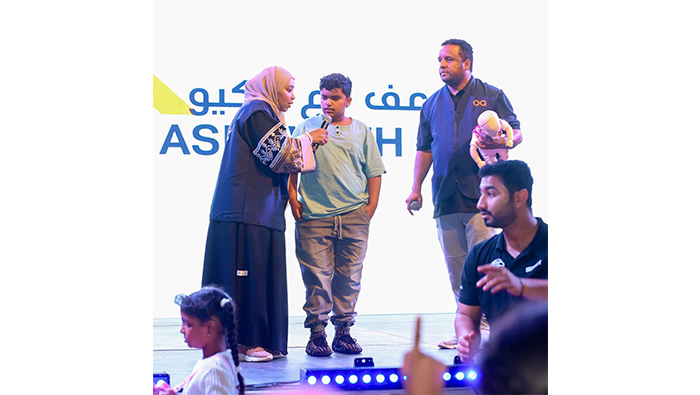
Muscat: OQ Exploration & Production, an OQ Group company, has recently wrapped up the second edition of the “Asef with OQ” initiative, which spanned across 10 governorates in Oman.
The primary objective of this year’s programme was to train around 2,000 individuals from various governmental and civil society organisations, focusing on first aid, emergency medical response, and injury management.
This initiative is a key component of OQ’s corporate social responsibility (CSR) strategy, embodying the group’s deep-seated commitment to fostering a sustainable, positive societal impact.
This endeavour aimed to raise health and safety awareness within the community and establish a sustainable community involvement culture.
Achieving this objective involved empowering different segments of local communities with the necessary skills to respond quickly and effectively in emergencies, including administering first aid to individuals experiencing cardiac arrests.
The “Asef with OQ” initiative engaged various participants, including volunteer and charity teams, youth clubs, health professionals, school health nurses, and members from different community and sports teams.
Physical education teachers, laboratory technicians, school bus drivers, and students were also integral to the programme.
These diverse groups honed 24 essential skills: first aid, rescue operations, emergency response, safe vehicle and school bus driving, time management in crisis situations, and upholding personal and public safety standards.
Notably, the initiative positively impacted 10 youth volunteer and charitable teams and 15 school teaching staff in the participating governorates.
This collaboration effectively reinforced community partnerships, involving over 15 government entities and civil society institutions, thereby enhancing the initiative’s reach and impact across the region.
The initiative notably featured a comprehensive training suite, including a Basic Life Support course specifically designed for health practitioners, resulting in a recognised certification.
This was complemented by two additional programmes: the Paramedic Programme for the Regular Responder and the Emergency Response Programme, each providing two-year valid certifications accredited by the Ministry of Higher Education, Research and Innovation.
The Basic Life Support programme focused on equipping health professionals, such as doctors and nurses, with skills for rapid response to critical heart-related emergencies and essential first aid knowledge.
In contrast, the Emergency Response Programme aimed to train community members in correct emergency interventions, including CPR, automated external defibrillator usage, handling choking incidents and basic first aid for various emergencies.
These programmes, enriched by interactive workshops on safety and rescue and specialised training for school bus drivers, required participants to pass written and practical exams to earn these internationally and locally accredited certifications.
The workshops played a pivotal role in arming participants with essential knowledge and skills for effectively planning and managing emergencies, particularly in scenarios such as severe weather conditions and safety and rescue, executed in partnership with the Traffic Safety Institute of the Royal Oman Police.
These sessions were designed to educate students and bus drivers on safe driving practices, with a strong emphasis on ensuring the safety of students during transportation.
Integral components of these workshops included emergency first aid and rescue techniques, equipping participants to adeptly handle injuries or health emergencies that might occur in schools.